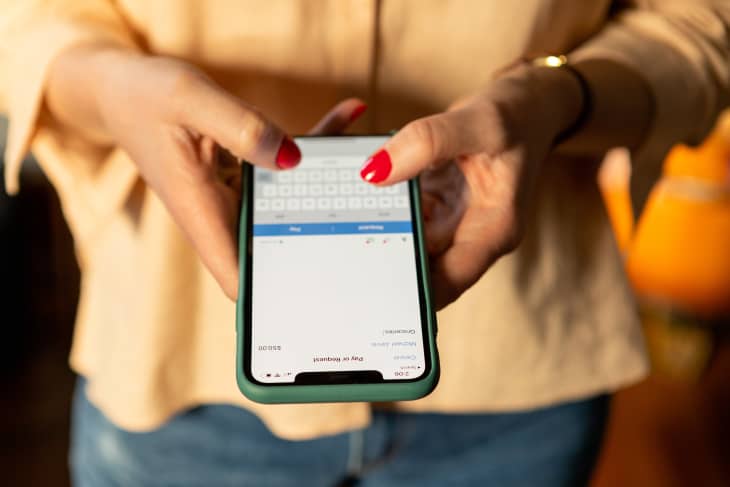The First Thing to Do the Next Time You Accidentally Overdraft Your Bank Account, According to Experts

If you’ve overdrafted on a bank account over the past year, you’re not alone — in fact, overdrafting might only become more commonplace due to the economic costs of the pandemic.
Overdrafting is when you try to spend more money from your checking account than you actually have in that account, usually by buying something with a debit card without enough money in that account to cover the charge. Most banks will let your charge go through instead of declining it, but then will charge you an overdraft fee of about $30 (and might even charge daily overdraft fees until you can get your account back in the black). Those fees can add up quickly, and they end up giving banks a lot of money. In 2019, banks collected more than $11.68 billion through these practices, according to a report from the Center for Responsible Lending.
CRL Senior Researcher Peter Smith, who co-authored the report, wrote that these fees have the potential to get worse as a result of the pandemic.
“Bank overdraft practices cause many families severe financial distress in the best of times. During the economic crisis caused by COVID-19, the devastating impact of overdraft fees are only more pronounced,” Smith wrote. And LeTian Dong, a certified financial planner and the chief of staff and vice president of planning for Northwestern Mutual: Tom Morris in Durham, North Carolina, told Apartment Therapy that another reason the pandemic could make overdrafting more common because “it’s easier to make a mistake when under stress.”
This comes at a time in which one in four adults have had trouble paying their bills since the coronavirus pandemic started, according to the Pew Research Center. When the pandemic first started, Democratic Senators Cory Booker of New Jersey and Sherrod Brown introduced a bill that would stop financial institutions from charging overdraft fees until the pandemic ended, but it never made it onto the Senate floor for a vote.
And even before the pandemic, overdrafting happened. Dong says it’s so common, “it can even happen to organized financial gurus.”
What You Can Do When It Happens
Dong says the first step to take it to call the merchant so they don’t attempt to draft from the account again. Then, call your bank — especially if you were charged a fee.
“Here’s a secret: Bank fees are negotiable,” Dong says. “Banks can usually waive the fee if you ask nicely, especially if it’s your first time or it’s been awhile since the last time it happened.”
What You Can Do So It Doesn’t Happen Again
If you’re someone who overdrafts often, Dong recommends looking into credit unions “as they usually charge less than a bank if an overdraft occurs.” She also suggests looking into online bank options, as their rates might be lower than those of a traditional bank.
But overdrafting — no matter how little you pay as a penalty — still isn’t great. To ensure it doesn’t happen again, you can opt out of automatic overdrafts — meaning the bank will simply deny your charge if you try to pay for something without the funds. This might be embarrassing in the checkout line, but it can save you money in the long run.
The American Bankers Association also recommends shopping around for the bank that offers you exactly what you want, and signing up for alerts from your bank when your funds dip below a certain number. Whether that’s a balance of $100 or $10 will depend on your needs and financial habits.
Of course, it’s also helpful to make personal finance a habit by keeping a monthly budget that you’ll actually stick to. You can use apps like Mint or YNAB, or even hire a bookkeeper, which Dong recommends “if you run a business and your cash flow situation is a bit complex.”
“Avoiding personal finance ‘uh oh’s really starts with good habits,” she said. “Balance [your] checkbook monthly and have a budget so you’re aware of the cash flows coming in and going out.”
Finally, Dong recommends creating a kind of cash buffer if you can — basically, keep a certain amount of money in your checking account at all times, and treat that number as if it is zero.
“We have seen overdraft happen when someone forgot they had bill pay already set up and then manually wrote a duplicate check, or when paying off a credit card and accidentally typed the decimal point wrong,” Dong said, adding that you could accidentally send $1,000 instead of $100. “Accidents happen — create a cash buffer in the account to be on the safe side.”